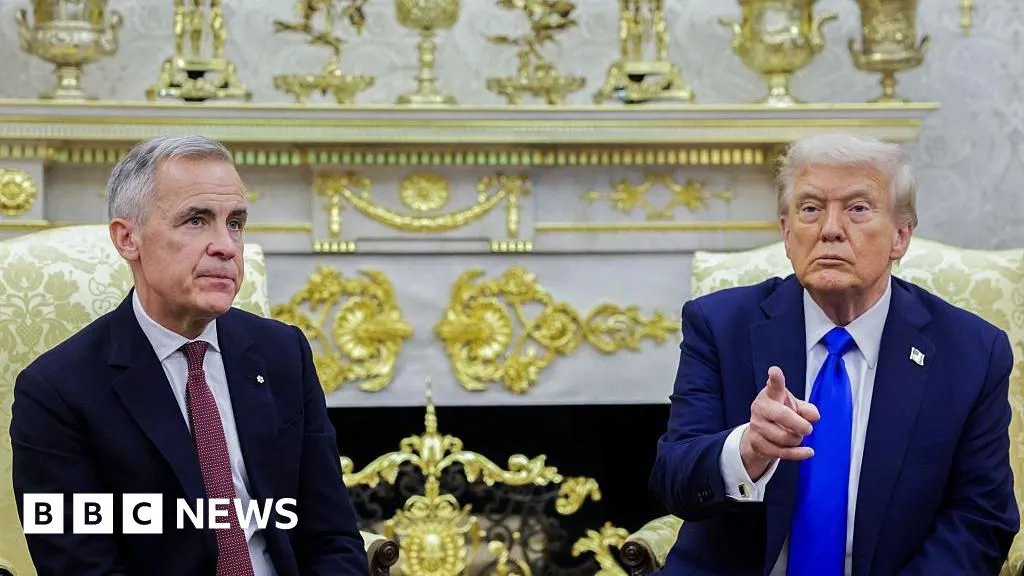Trump has said as recently as February that he would like to see it built, though the company behind it said it had "moved on".
The BBC has reached out to the White House and the prime minister's office for comment. The Keystone XL discussions were first reported by CBC News.
The conversation was described as preliminary, the source told the BBC, and both Carney and Trump have instructed their teams to continue discussions in the coming days.
In a statement on Wednesday, the prime minister said his meeting with Trump focused on "key priorities in trade and defence". and that the two leaders "identified opportunities for material progress in trade in steel, aluminium and energy".
Carney's statement did not mention any specific energy projects, including any oil pipelines.
The prime minister is under domestic pressure to secure a trade and security deal with the US in the face of steep tariffs on key Canadian sectors, including a 50% levy on steel and aluminium and a 25% levy on vehicles.
Keystone XL was a planned 1,179-mile (1,897 kilometre) pipeline that was to run from the oil sands of Alberta, Canada, to Steele City, Nebraska, where it would join an existing pipe. It was estimated that it would carry 830,000 barrels of oil a day.
It faced resistance from former President Barack Obama, who refused to issue the presidential permit required for its development in the US after the Enviromental Protection Agency (EPA) advised him not to approve it.
Environmentalists and indigenous groups have also long opposed the project.
Trump later revived it during his first term and construction on it began, but the project was halted after former President Joe Biden cancelled its permits on his first day in office.
The pipeline project was owned by Calgary-based TC Energy, which last year spun off its oil pipeline business into a new company named South Bow.
The company had abandoned the project after permits were cancelled by the Biden administration. It is estimated that billions of dollars were lost on the project, including a C$1.5bn ($1bn; £800m) investment by the Alberta government.
After Trump raised the potential of its revival in February, South Bow said it had "moved on" from Keystone XL.
News of the pipeline being raised in discussions was welcomed by Alberta Premier Danielle Smith, who told reporters at a Wednesday US-Canada summit in Toronto that she was pleased conversations are encompassing steel, aluminium and energy.
"That has been our position for a long time," Smith said. "One of the first things I told the prime minister is that we shouldn't be threatening to sell the Americans less. We should be promising to sell them more."
She added that she sees Alberta oil as a key player in "a broader and complete renegotiation" of the North American free trade agreement, USMCA, "that benefits everyone".
Separately, Smith's government has said it will pitch a pipeline project that would run through neighbouring British Columbia with hopes of finding a private company to back it.
That idea has been met with resistance by British Columbia Premier David Eby, who called it "fictional" and said it would threaten his province's ecosystem.
Bloc Québécois Leader Yves-François Blanchet has also criticised Alberta's oil plans, saying that he would denounce any new pipeline from the province for "destroying the environment of the whole planet".
